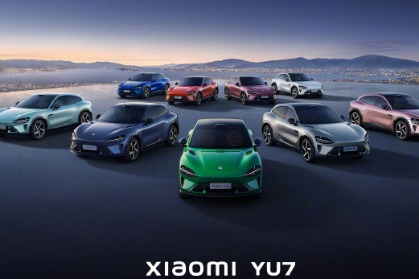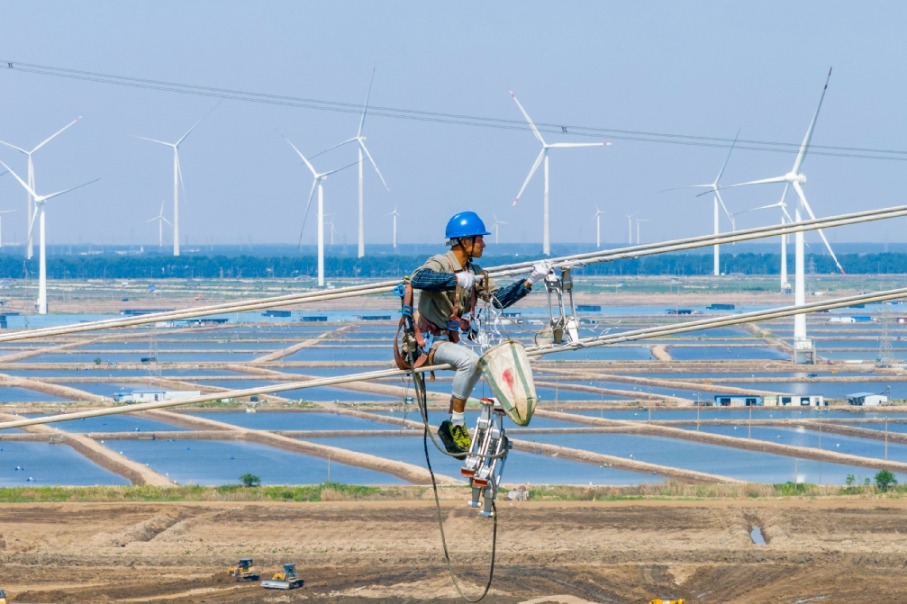Potential seen in Africa's oil, gas sector

Cooperation provides the much-needed materials for China's industrial expansion
Just as China's economy continues to grow, its energy demands have also risen sharply. In order to ensure its energy security, China has to establish oil diplomacy with Africa, because it's domestic energy reserves are not sufficient to cater to its rapid economic expansion.
As a latecomer to the global oil markets, China's national oil and gas corporations came up with an energy strategy of circling the planet in search of opportunities to bargain or make investments in oil and gas fields.
Thus, since 1995, China-Africa cooperation in the energy sector, as well as in other industries, has rapidly deepened and expanded. This is partially because the oil and gas sector offers Africa a unique opportunity that still needs to be harnessed, given the continent's ever-growing discoveries of new oil and gas deposits in countries like Uganda, Ghana, Mozambique and Tanzania.

In addition, there are projected oil and gas fields in countries like Mali, Sierra Leone and Kenya. This mounting relationship has become the subject of debate for Western policymakers and academics, who have argued that the Chinese oil diplomacy with Africa has two main goals. They have asserted that, in the short term, China seeks to secure oil supplies to help feed growing demand back home. In the long term, China seeks to position itself as a global player in the international oil market.
Whatever the case may be, China-Africa cooperation in the energy sector provides the much-needed materials for China's industrial expansion. At the same time, it offers expansion of the financial sources of Africa's development and raises the value of the continent's energy resources.
More important, it facilitates local infrastructure development projects. Chinese oil and gas companies are providing the much needed employment opportunities for the local population, which will lead to improved living conditions.
China's investment into Africa's oil and gas sector also increases export revenue for African host countries. In addition, oil-rich African host nations have largely welcomed Chinese oil investment, simply because China's national oil and gas corporations have demonstrated willingness to help these oil-rich states construct modern refineries, which will reduce their reliance on importing products from overseas suppliers.

For instance, Chinese national oil and gas corporations have so far erected or dedicated themselves to the construction of oil refineries in a number of oil-rich African countries that previously had no refining capabilities, including Nigeria, Sudan, Niger and Chad.
Since the height of the Cold War in the 1960s, China has perceived African countries to be diplomatically and strategically important.
Chinese engagement with the African continent has been increasing at a rapid rate.
Unlike most oil producing regions of the world, the African energy industry is open to foreign investment, and China's relations with countries on the continent are free of ideological or security obstacles, as well as the antagonism and exploitation that have historically played out in Western and African relations, such as colonial exploitation of black workers and racial marginalization.
With regard to oil diplomacy, China has established solid relations with the continent's energy producers, especially Gabon, Sudan, Equatorial Guinea, Angola and the Democratic Republic of Congo.
The policy instrument advocated by Beijing is the "projects-for-oil" approach, whereby Chinese State-owned development banks, namely the China Export and Import Bank and the China Development Bank, are financing a range of projects on the continent, from social or industrial infrastructure development projects to agricultural research development.
In exchange, these oil-rich countries give Chinese national oil and gas corporations access to their oil resources and repay their loans with their future oil production. The model has been dubbed the "Angola model" because in Angola, Beijing has assisted in the building of that country's low-cost residential housing projects.
Under this Chinese-pioneered oil diplomacy, Angola was also exempted from its sovereign debts that were due by 1999. As a result, Angola's share in China's oil imports nearly doubled between 1995 and 2003, which made it the third-largest crude oil exporter to China in 2003.
Moreover, due to the approach's success in Angola, it has since been replicated in other parts of Africa, such as Nigeria, Chad and Ghana. It has also been applied to Chinese acquisition of other raw materials, such as copper in the Democratic Republic of Congo. This approach has inherent attraction for Beijing, since it enhances China's oil interests and other dimensions of interest, such as exports of Chinese goods, services and technology into Africa.
Overall, Africa currently supplies about 30 percent of China's total crude oil imports, and it is China's second-largest source of energy supply after the Middle East. The question, then, is why now Africa? The answer to this question lies in three factors that have given rise to Africa's prominence in Beijing's global quest for oil and gas.
First, the growth of China's oil imports from Africa coincided with the decline in imports from the Asia-Pacific Region as the latter turns into a gross oil importer.
Second, Africa's growing prominence as Beijing's second-largest energy supplier is fueled by China's strategy to diversify away from its dependence on the Middle East, which is frequently beleaguered by insecurity and volatility.
Third, Africa offers Beijing unique oil attributes, as it has largely unexploited oil reserves that are opportunely located for maritime transportation, and it has outstanding oil reserve growth potential.
Another important point is that Africa also produces low density and sulphur content crude oil. It also remains open to foreign oil investment and continues to award production sharing agreements through which foreign oil companies can obtain equity oil. These features carry special appeal to Beijing's national oil companies, since three-fourths of China's refining capacity is designed for crude oil with low sulphur content.
The writer is a research assistant at the Institute for Global Dialogue of the University of South Africa. The views do not necessarily reflect those of China Daily.
(China Daily European Weekly 10/06/2017 page9)
Today's Top News
- Expert debunks Lai's 'four elements' argument for Taiwan's so-called statehood
- China opposes any tariff deal made at its expense: commerce ministry
- Nepal's hydropower a climate change solution
- UN Charter still guiding compass of humankind
- Leaders pledge to strengthen Sino-Senegalese relations
- China, Ecuador to support each other's core interests






























